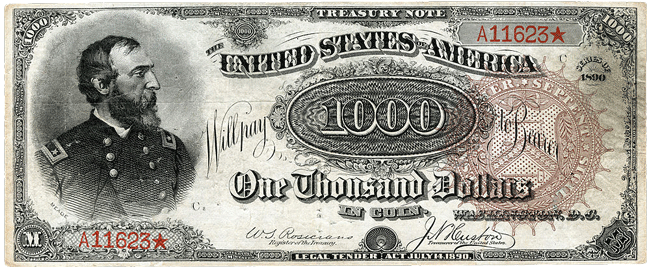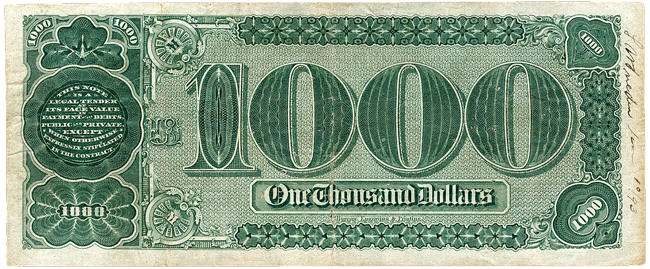ARTISTRY
Grand Watermelon Note
Move your cursor over the bill or tap it on your screen to see the reverse side.


- The note's front, or obverse, features a portrait of Union General George Meade and was engraved by Charles Burt, a 19th century engraver for the U.S. Treasury Department.
- Its nickname is derived from the color and shape of the zeros on the back, or reverse, and the ornate design there was designed to deter counterfeiting.
- Treasury Notes were only redeemable in coin. The authority for the Treasury to issue these notes came from the Sherman Silver Purchase Act.
- Considered one of the most valuable and rare Treasury notes still in existence, a Grand Watermelon note sold for $3.29 million in January 2014.



